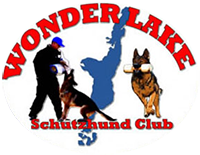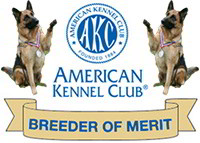Key Takeaways:
- An old German Shepherd dog needs more attentive care starting around age 7–10 as joints, digestion, and energy levels change.
- Common challenges include arthritis, weight gain, digestive sensitivities, reduced stamina, and cognitive decline.
- Support your dog with regular vet checkups, a senior-friendly diet, gentle exercise, mental stimulation, and a safe, comfortable home.
- Monitor their weight, dental health, and watch for breed-specific risks like hip dysplasia or bloat.
- With thoughtful care and guidance, your senior German Shepherd can stay healthy, happy, and vibrant for years to come.

As your old German Shepherd dog enters their golden years, their needs begin to change in ways that may leave you wondering how best to keep them healthy, comfortable, and happy. As German Shepherd breeders, we understand the deep bond you share with your loyal companion and how important it is to give them the care they deserve at every stage of life.
With thoughtful adjustments to their routine, diet, exercise, and healthcare, you can help your German Shepherd stay vibrant and content well into their senior years. Here are proven, practical ways to support your dog as they age while strengthening the special connection you already share.
Recognize Your Old German Shepherd Dog’s Health Needs
Between the ages of 7 and 10, German Shepherds often begin to show subtle signs of aging that signal it’s time for more attentive care. Their joints may stiffen, digestion can become more sensitive, energy levels tend to dip, and their immune system may not be as strong as it once was. Understanding and addressing these changes early allows you to keep your dog as healthy, comfortable, and active as possible in their senior years.
You might notice your dog slowing down on walks, taking longer to get up, hesitating on stairs, or losing interest in activities they once loved. These gentle reminders of their age are important cues to adjust their care and ensure they continue to enjoy life with you.
As experienced German Shepherd breeders, we encourage a proactive approach to senior care that focuses on prevention, comfort, and connection. With the right care, your aging German Shepherd can remain a cherished, happy companion for many more years.
Common Concerns For Senior German Shepherd Owners
Watching your loyal German Shepherd age is rewarding yet challenging. As they enter their senior years, you may notice physical and behavioral changes that can feel overwhelming at first. Understanding the most common concerns helps you respond with confidence and keep your dog happy and healthy.
- Joint discomfort and mobility issues: Many senior German Shepherds develop arthritis or hip dysplasia, which can cause stiffness, pain, and reluctance to move. These conditions can make everyday activities challenging and raise concerns about your dog’s comfort and quality of life.
- Weight management: This becomes more complicated as their metabolism slows. Excess weight adds strain on aging joints and increases the risk to heart health. Many owners struggle to find the right balance of nutrition and exercise to help their dog stay fit.
- Digestive sensitivities: Older dogs may develop food intolerances or experience bloating and discomfort after meals, leaving owners unsure of what dietary changes are best.
- Reduced energy and cognitive decline: Signs of confusion, lower stamina, or personality changes often worry owners who feel their dog isn’t quite the same. Mental stimulation and enrichment become essential to keeping their mind sharp and engaged.
- Increased veterinary costs: This can add financial stress as age-related health issues become more frequent. Many owners look for affordable, effective ways to maintain their dogs’ well-being without sacrificing care.
These concerns highlight the importance of having a thoughtful senior care plan. As trusted German Shepherd breeders, we’re here to guide you through these challenges and provide solutions that keep your dog comfortable, healthy, and happy in their golden years.
Practical Solutions For Senior German Shepherd Health
Helping your old German Shepherd dog stay happy and healthy starts with a thoughtful approach to their unique needs as they age. Focusing on regular veterinary care, proper nutrition, appropriate exercise, and mental stimulation can address the most common challenges and improve their quality of life. Here’s how to put these strategies into action:
Veterinary Care & Monitoring
Routine vet visits are essential for detecting age-related issues early. Schedule biannual checkups to screen for arthritis, kidney problems, dental disease, and other concerns. Bloodwork and joint exams help guide treatments such as supplements or pain management. Be sure to discuss vaccinations and preventive care to keep your dog protected.
Tailored Nutrition For Aging Dogs
A senior-appropriate diet supports digestion, keeps weight in check, and promotes joint health. Choose high-quality senior formulas with easy-to-digest proteins, added fiber, and nutrients like glucosamine. Carefully measure portions to avoid overfeeding, and talk with your vet about calorie adjustments. If your dog has sensitivities, limited-ingredient diets can help keep them comfortable.
Gentle Exercise For Mobility
Keeping your senior dog active prevents weight gain and keeps their joints flexible, but activities should match their abilities. Short walks on grass or other soft surfaces reduce joint stress. Swimming is another excellent, low-impact way to build strength. Pay attention to signs of fatigue and adjust routines as needed to keep your dog comfortable.
Mental Stimulation For Cognitive Health
Engaging your dog’s mind is just as important as keeping their body healthy. Incorporate puzzle toys, scent games, or light training sessions to help prevent cognitive decline. Daily interaction not only stimulates their brain but also deepens your bond and lifts their spirits.
Joint Support & Comfort
To ease discomfort from arthritis or stiff joints, consider supplements like omega-3s or chondroitin, as recommended by your vet. Provide a supportive orthopedic bed and install ramps or steps to help them move around more easily. Small changes can make a big difference in their daily comfort.
Monitoring Weight & Body Condition
Maintaining a healthy weight reduces strain on their joints and organs. Regularly assess their body condition using a score chart, and adjust their diet accordingly. Avoid overfeeding, and consult your vet if you notice significant changes.
These practical steps help address the common challenges of aging and keep your dog feeling their best. With consistent care and attention, your senior German Shepherd can continue to enjoy a happy, comfortable life by your side.
Actionable Tips To Protect Your Senior German Shepherd’s Health
Preventive care is one of the most effective ways to help your senior German Shepherd avoid health setbacks and stay comfortable as they age. By staying proactive, you can catch problems early, manage risks, and support their overall well-being. Here are simple, actionable strategies to keep your dog healthy:
- Establish a consistent routine: Stick to regular feeding times, exercise sessions, and sleep schedules. A predictable daily rhythm promotes good digestion, supports mental clarity, and helps your dog feel secure and relaxed.
- Maintain dental hygiene: Oral health often gets overlooked, but it can significantly impact your dog’s overall health. Regularly brush their teeth with dog-safe toothpaste, and schedule professional cleanings to prevent infections or tooth loss.
- Keep vaccinations up to date: As dogs age, their immune systems weaken, making vaccinations even more important. Work with your veterinarian to ensure your senior dog stays protected against common illnesses with the appropriate vaccines.
- Check for physical changes: Once a month, take a few minutes to gently check your dog for new lumps, skin changes, or behavioral shifts. Catching potential issues early gives you and your vet more options for effective treatment.
- Create a safe environment: Make your home senior-friendly by removing tripping hazards and adding rugs or mats to slippery floors. These adjustments make it easier for your dog to move around comfortably and reduce the risk of injury.
- Understand breed-specific risks: German Shepherds are more prone to certain conditions like hip dysplasia and bloat. Being familiar with these risks helps you recognize symptoms quickly and seek timely care when needed.
These simple preventive steps help ensure your senior German Shepherd enjoys a vibrant, healthy, and comfortable life. Our expertise as trusted German Shepherd breeders means we’re always here to guide you through every stage of your dog’s journey.
A Vibrant Future For Your Senior German Shepherd

As experienced German Shepherd breeders, we are committed to helping you provide the highest level of care for your senior dog. With our deep understanding of joint health, weight management, digestive needs, and cognitive support, we offer practical solutions that truly make a difference. Our team is proud to be your trusted source for premium German Shepherds and expert guidance, ensuring your dog’s health, comfort, and happiness at every stage of life.
Your old German Shepherd dog deserves to enjoy their golden years with vitality and joy. By focusing on regular veterinary care, balanced nutrition, gentle exercise, and mental stimulation, you can meet their changing needs while strengthening the bond you share.
As your dedicated German Shepherd breeders, we’re here to provide proactive strategies and personalized support to keep your loyal companion thriving. Contact us today to schedule a consultation or learn more about our exceptional German Shepherds. Together, we can ensure your dog’s spirit stays strong for years to come.













